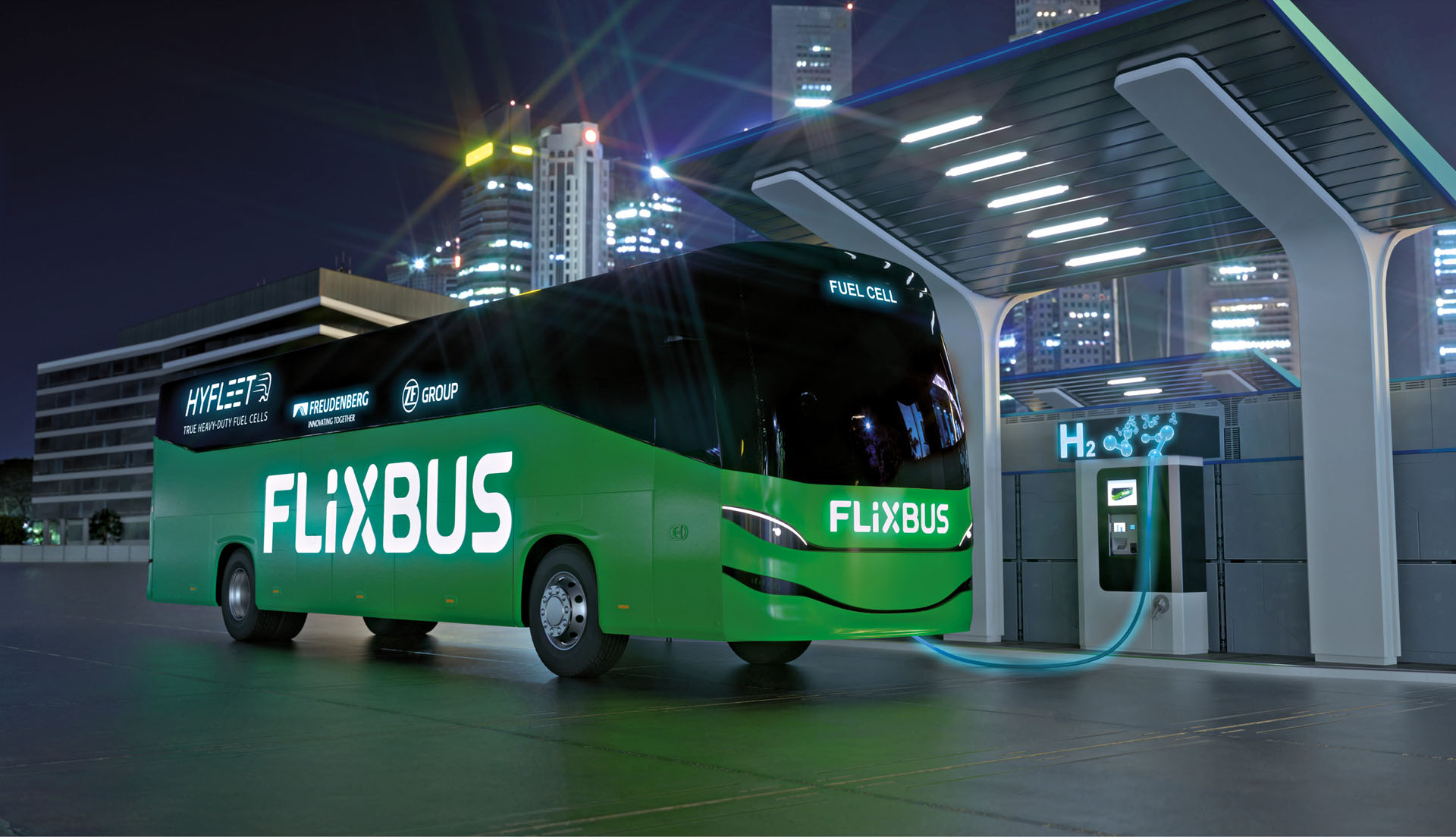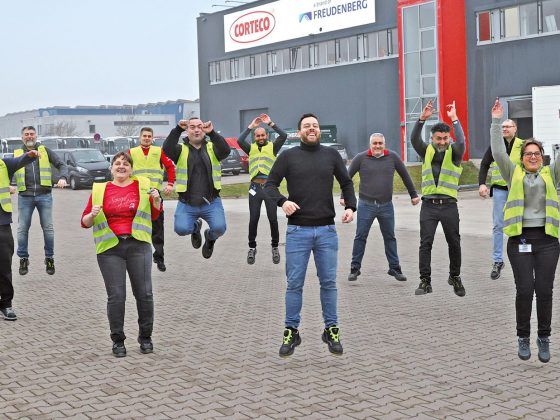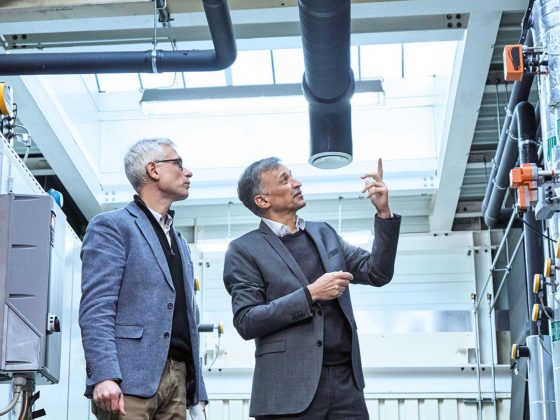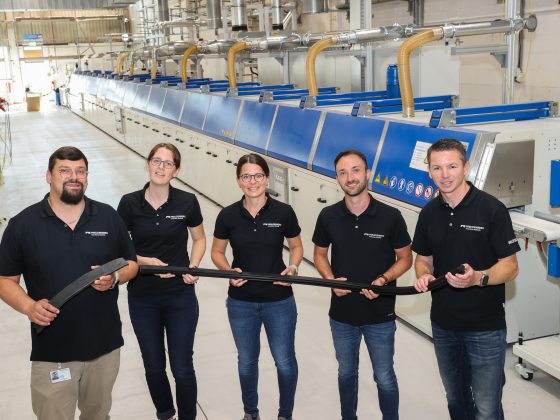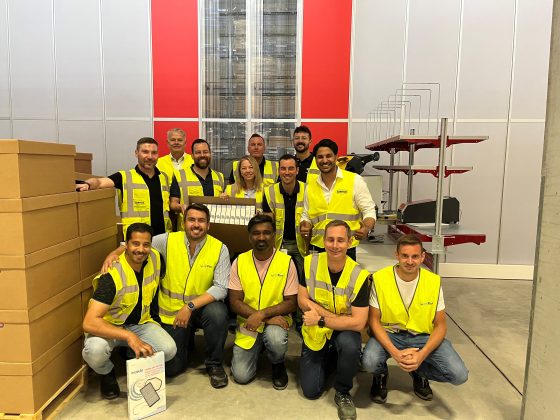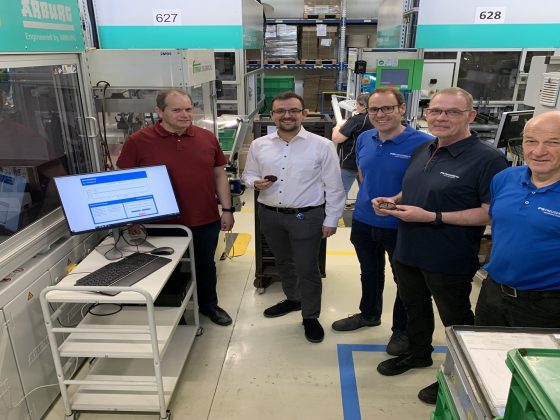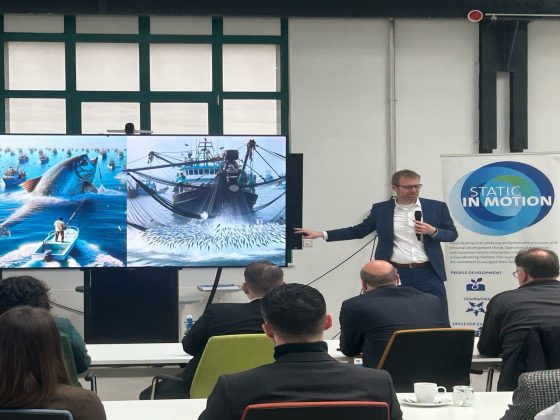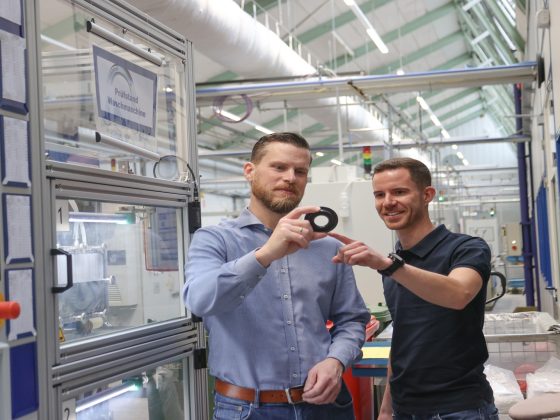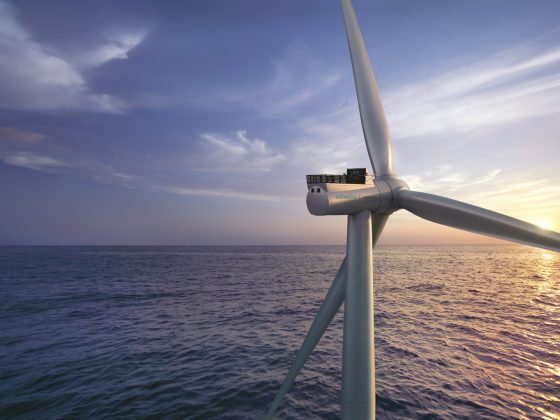Freudenberg Sealing Technologies (FST) has launched HyFleet, a publicly funded research project, with ZF Friedrichshafen AG and FlixBus. By 2024, the partners plan to have jointly developed a high-performance fuel cell system that totally replaces conventional diesel powertrains. In addition, the participating companies are exploring the hybridization of electric drivetrains using fuel cells and batteries.
If you travel a long-distance by bus instead of a car, you are already saving 6.6 kilograms of CO2 during a 400 kilometer (250 mile) trip. But there is still no practical solution for completely carbon neutral operation of long-distance bus fleets in regular service. The extreme demands on bus operations in long-distance service are the reason. Much like long-haul trucks, buses are often used around-the-clock and travel considerably more than 100,000 kilometers (60,000 miles) per year. The time spent at intermediate stops must be kept to a minimum to keep passengers happy. Two issues are obstacles right now: long charging times for batteries used in purely electric drives and the implementation of an expensive charging infrastructure needed for long-distance travel.
One alternative is fuel cells that run on hydrogen, in combination with an electric powertrain and a complementary battery storage system. This kind of powertrain solution is now being explored in a project delving into fuel cell technology. A high-powered consortium consisting of Freudenberg, ZF, FlixBus and a large European bus manufacturer has been formed to work on it. The joint research activities are starting now.
As part of the project, Freudenberg is developing a fuel cell system capable of long-distance travel that will be tested in a demo bus. “Freudenberg will contribute its fuel cell experience, which was developed over decades, to the project,” said Claus Möhlenkamp, FST’s CEO.
“We want to continue to develop both the durability and the efficiency of the technology while setting new standards for ‘total cost of ownership.’”
Claus Möhlenkamp, FST’s CEO
The research is also focusing on the hybridization strategy for the drivetrain, the so-called “rightsizing” between fuel cell and battery.
COMPETENT PARTNERS
In its investigation of fuel cell hybrid systems, FST is working on innovative concepts with great relevance to all the heavy-duty segments. ZF is its partner on this part of the project. “Vehicle manufacturers’ entry into e-mobility is aided by ZF’s broad technology portfolio and expertise in electrified drivetrains and associated systems,” said Wilhelm Rehm, member of the ZF Board of Management with responsibility for commercial vehicle technology and control systems. “In the future, fuel cells will play an important role in e-mobility for heavy-duty commercial vehicles due to their range and short timeframes for fill-ups. We have always pursued electrification as an open technology, and fuel cells have been important to us as a powertrain solution right from the beginning.”
In the first phase of the HyFleet project, the focus is on the technical performance of the fuel cells, in order to make sure that the systems stand up to tough, practical use in long-distance buses. Among other things, this includes the optimization of its durability – its operating life must be at least 35,000 hours.
This requires the maximization of the system’s efficiency over its entire lifespan. For fleet operators, this means low fuel consumption. At the end of the project, FST’s newly developed fuel cell system is due to be tested in a demonstration bus provided by the bus manufacturer.
In the view of André Schwämmlein, cofounder and CEO of FlixMobility, FlixBus is contributing the perspective of a global mobility provider. Based in Munich, Flix-Mobility – whose FlixBus, Greyhound Lines and Kâmil Koç brands compete in the long-distance bus sector – is making a crucial contribution to the green mobility transition with the continued, steady development of alternative drives and sustainable traveling alternatives. Working with more than 500 partner companies, the company already operates Europe’s largest fleet with more than 4,000 long-distance buses in regular service. “Fuel cell technology is giving some manufacturers the chance to actively help shape the future of travel. So we are all the more delighted to be part of the HyFleet project and to work with Freudenberg and ZF on developing the first long-distance buses with fuel cell powertrains in Europe by 2024,” Schwämmlein said.
The nonprofit company atmosfair is calculating how great the CO2 savings would be from a FlixBus hydrogen fleet across the entire energy chain, that is, including hydrogen production and distribution.
SIGNAL EFFECT
From the beginning, the partners have considered it important for the project’s results to carry over to all the heavy-duty segments, especially for freight transportation on heavy-duty trucks, even though HyFleet is focusing on travel bus fleets.
In Freudenberg’s view, travel buses could also play a pioneering role in a fast transition to hydrogen-based mobility. Thanks to long-distance travel buses, the charging infrastructure emerging along the most traveled freeways would be fully utilized. “We need practical, carbon neutral powertrain solutions for long-distance transportation,” Möhlenkamp said. “With our fuel cell system, we have such a solution. Working with our partners, including ZF and FlixBus, we are now developing the scientific foundation for rapid industrialization and the upscaling of the technology.” In addition to the HyFleet project, ZF and Freudenberg are jointly exploring other applications for fuel cell solutions for mobility-related and industrial use.
The HyFleet project is the further development of a partnership launched in 2019 between FlixBus and FST. FlixBus understands the need to adjust existing, tried-and-tested fuel cell technology to the requirements of heavy duty transport. About one quarter of the total operating costs of travel buses relate to their fuels. The rate is even higher for trucks, reaching about 35 percent. Highly efficient fuel cell systems thus have a considerable impact on the minimization of fuel costs. “FlixBus appreciates Freudenberg’s technology set-up. And now we have combined our activities in a publicly funded project in which a European bus maker is participating,” said Michael Milch, Director, Sales and Marketing, Fuel Cell e-Power Systems.
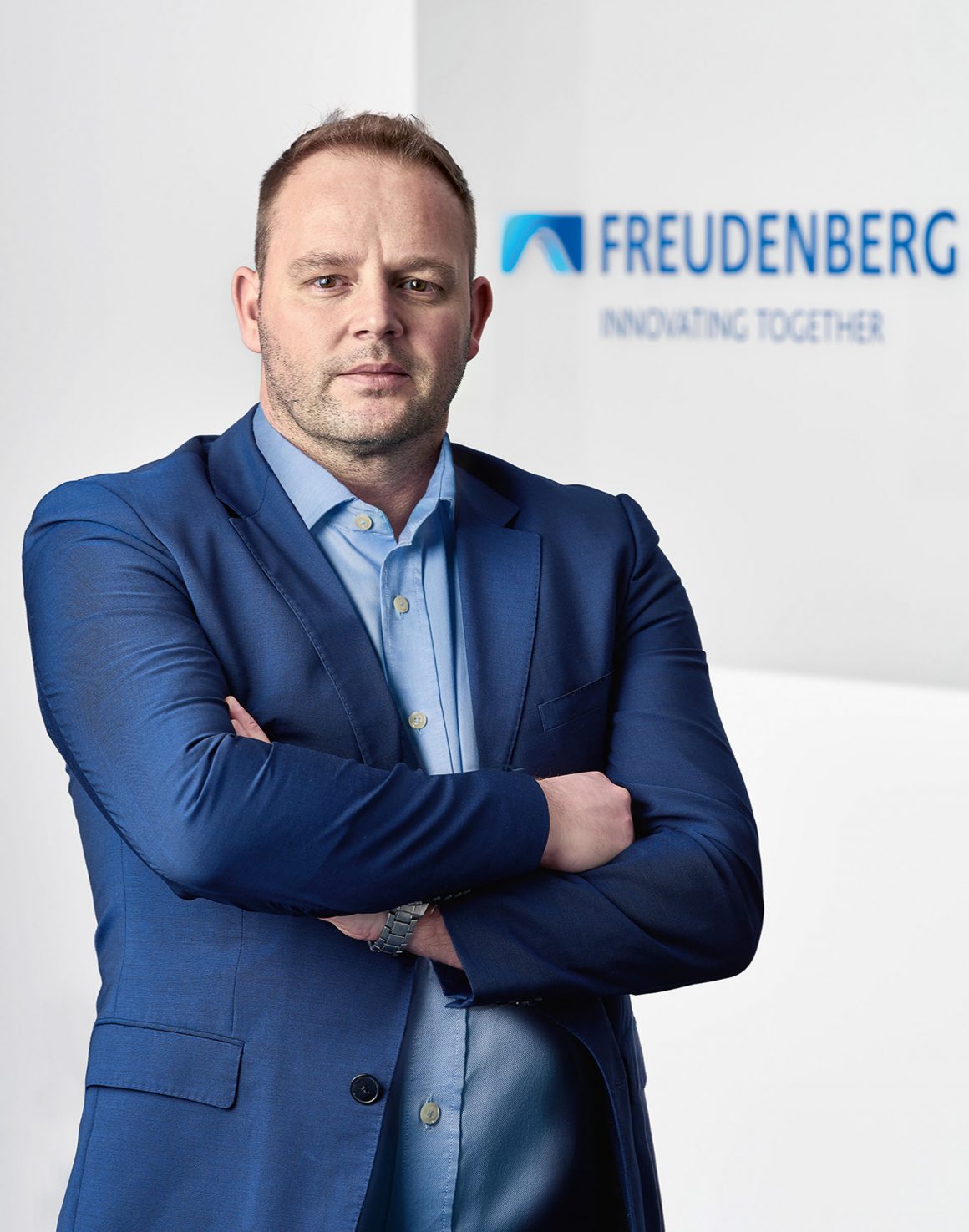
HEAVY-DUTY FUEL CELLS
The HyFleet project is being funded by the German Federal Ministry for Transportation and Digital Infrastructure as part of a national program promoting innovations in hydrogen and fuel cell technology. Phase one involves the development of technology explicitly for heavy-duty fuel cells. Phase two is aiming for a broadly based fleet demonstration with at least 50 vehicles in 2025.
Freudenberg is leading the consortium and is responsible for ensuring that the main goal for phase one is achieved: the development of a heavy-duty fuel cell technology for long-distance use – with a lifespan of at least 35,000 hours.
“The greatest technological challenge facing the development of hydrogen-fuel cell buses is that the solutions have to be competitive both technologically and commercially,” Milch said. “Currently, the available systems are largely based on fuel-cell technologies for cars and do not meet the requirements for system efficiency and overall operating life.” This is exactly where Freudenberg is starting out as a global technology company. “Our long experience with industrialization and our high degree of vertical integration, including our own catalytic converter production, will make the difference in the future. Freudenberg has expertise in cells and is in a position to optimize costs, quality and performance.”
The transition from internal combustion to electric drive allows changes in vehicle design. Here the modularity of fuel cell technology offers a wide range of design options. Interesting new possibilities are currently in development. “But FST is not an OEM. Our technology is suited for every approach and can be individually adapted,” Milch said.
On Board Buses and Yachts
The Freudenberg Fuel Cell e-Power Systems GmbH (FFCPS) offers complete fuel cell systems for emission-neutral heavy-duty applications.
The FFCPS manufactures fuel cell technologies that will be on board passenger ships, yachts, buses and trucks in the future.
TOTAL COST OF OWNERSHIP*
Weight and charging speed, along with range, are important aspects for the development of a battery-electric travel bus. Each of these factors has direct effects on the total cost of ownership. Costs and the space requirements for the charging infrastructure will play an important role in the coming transition to complete carbon neutrality and a clearly increasing fleet of electric commercial vehicles. Fuel cells have a clear advantage here, especially in the heavy-duty field, and will likely be the most competitive, emission-free solution for long-distance applications.
The financial side has to be considered as well: A competitive price for hydrogen is a precondition for a lucrative business model for fleet operators. The most important players in the industry expect the total cost of ownership to match figures for diesel vehicles even before 2030. Traditional and new participants in the market are investing heavily in the production of green hydrogen, based on clear application cases and, naturally, clear expectations of profits.
*The total cost of ownership (TCO) is the purchase price of an asset plus the costs of operation. Assessing the total cost of ownership represents taking a bigger picture look at what the product is and what its value is over time.
[Source: www.investopedia.com]
